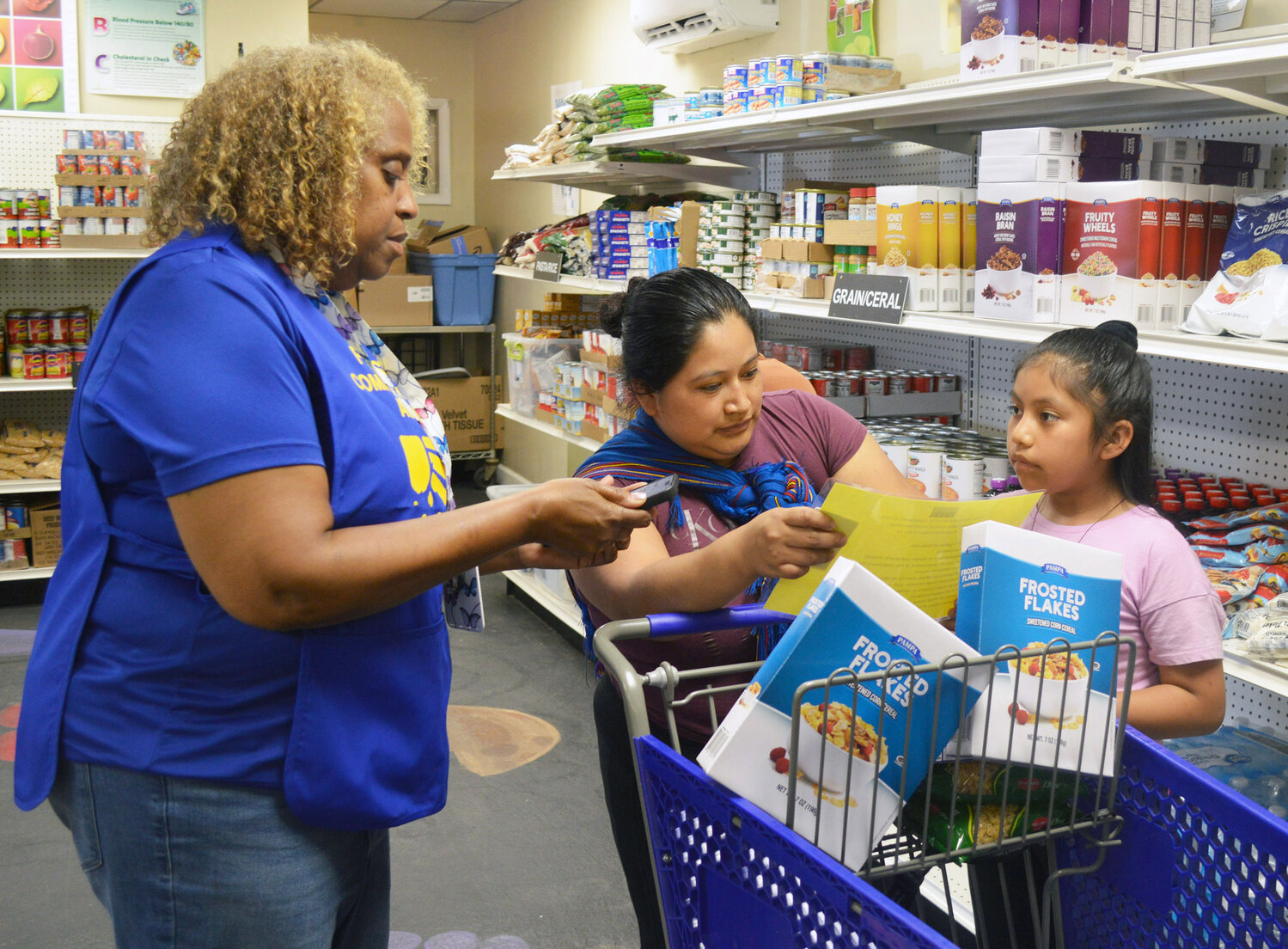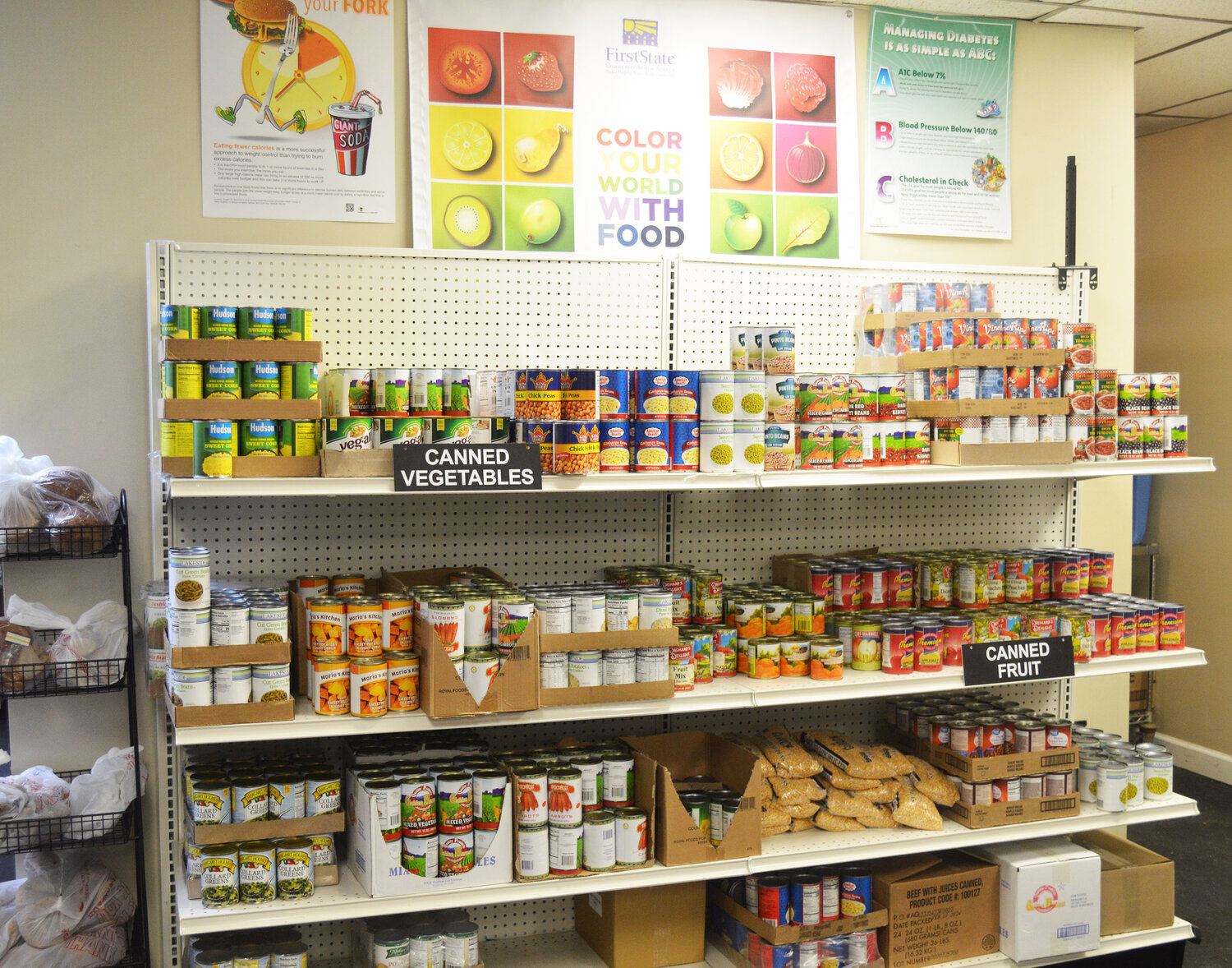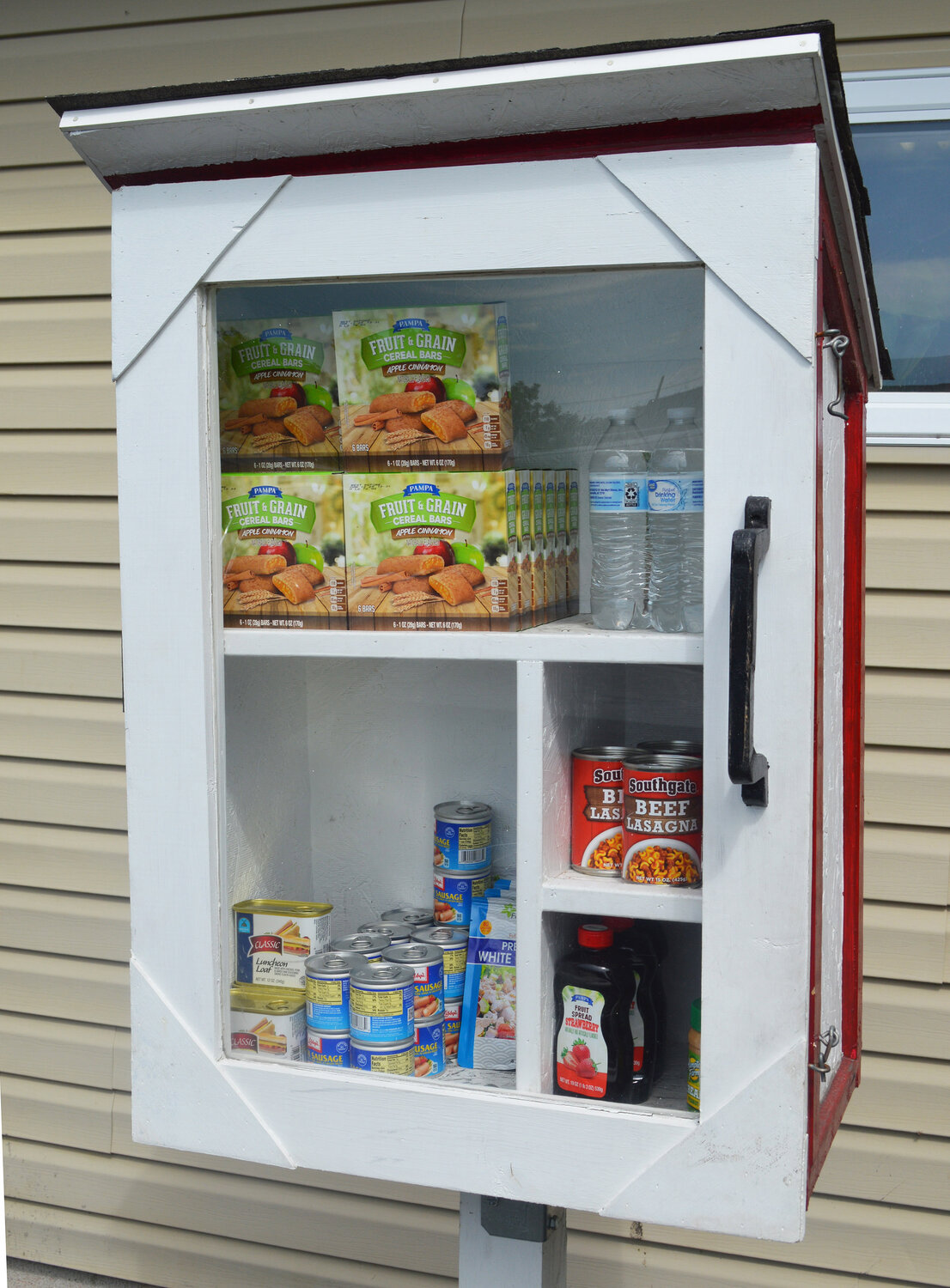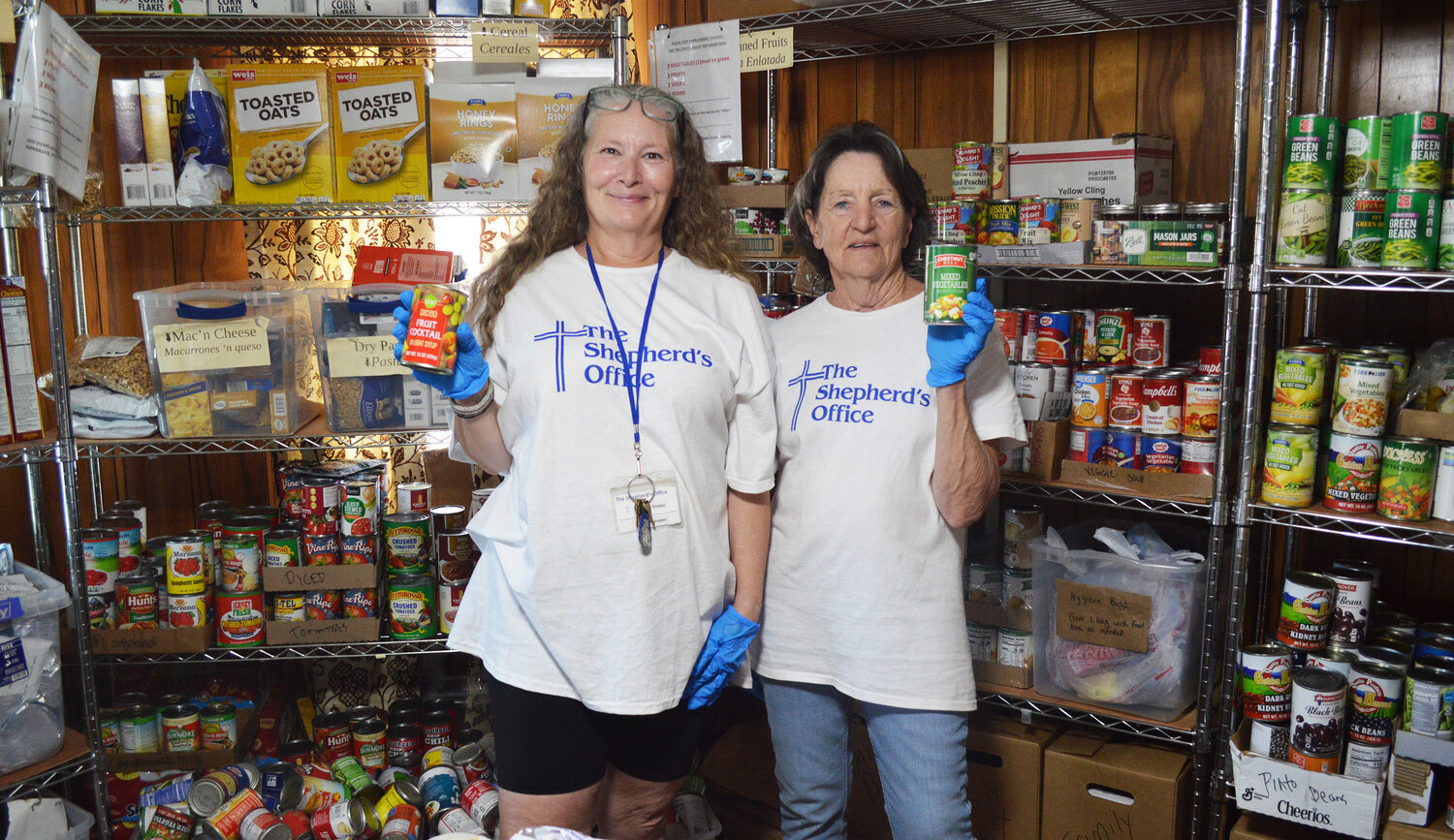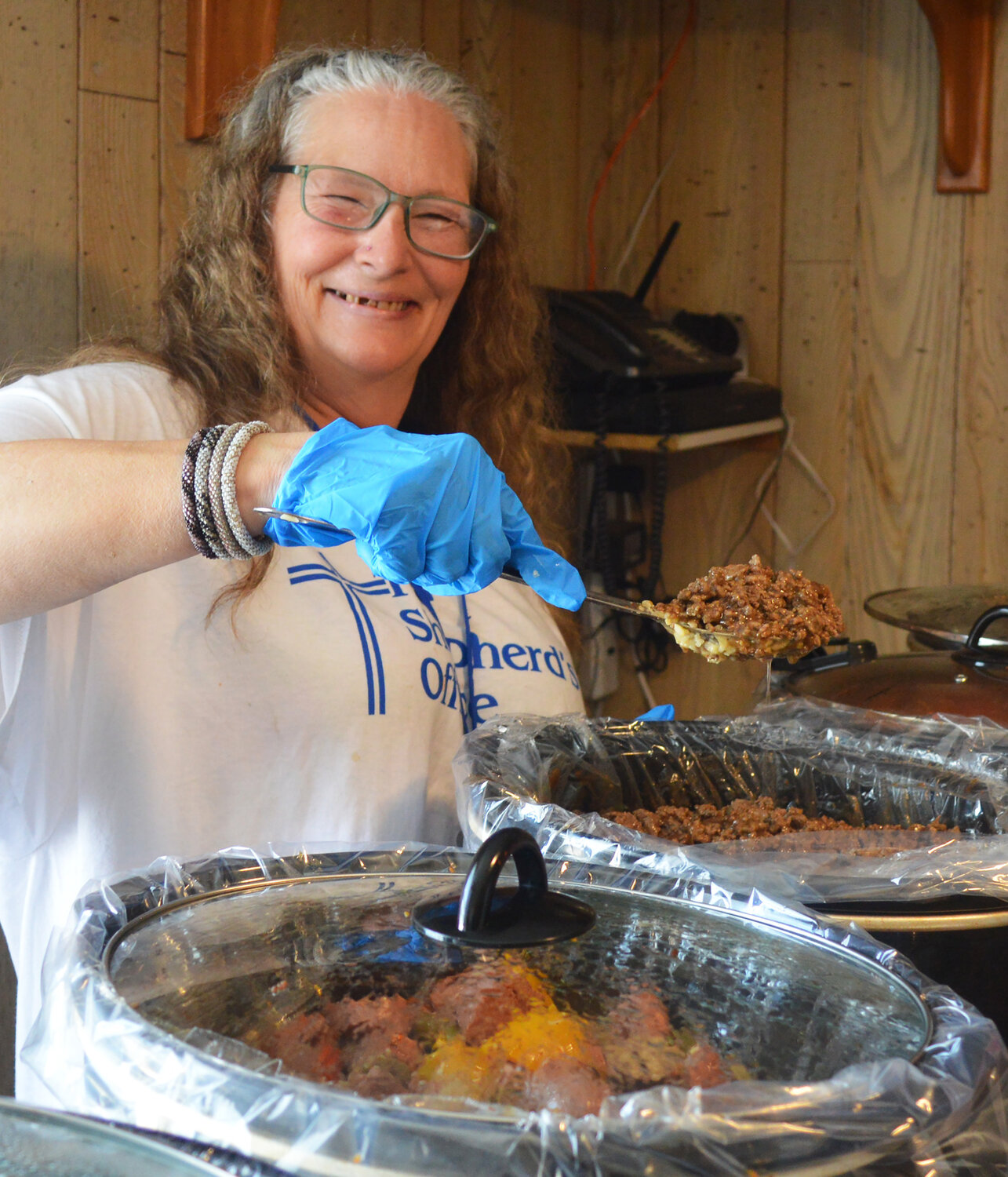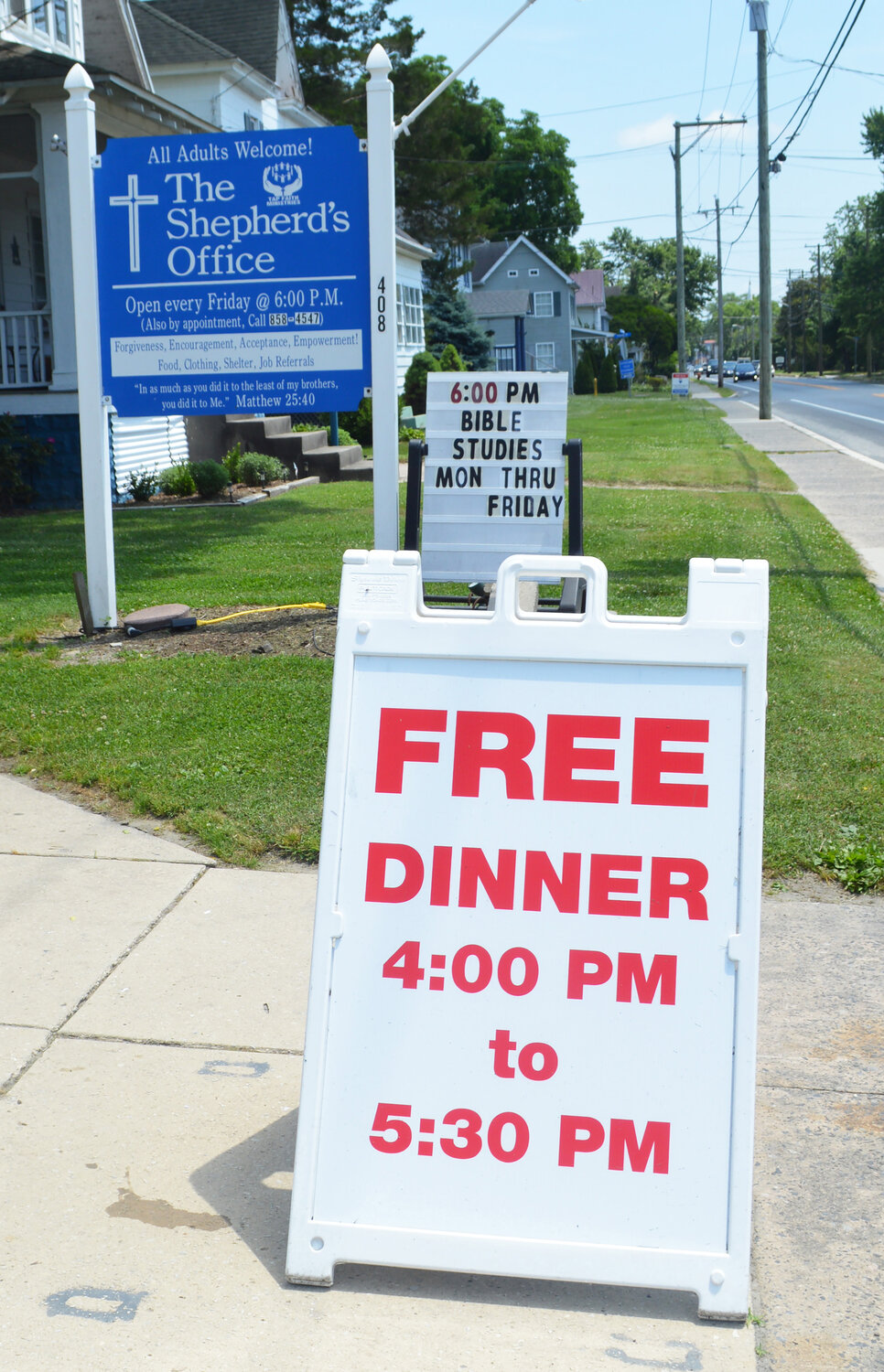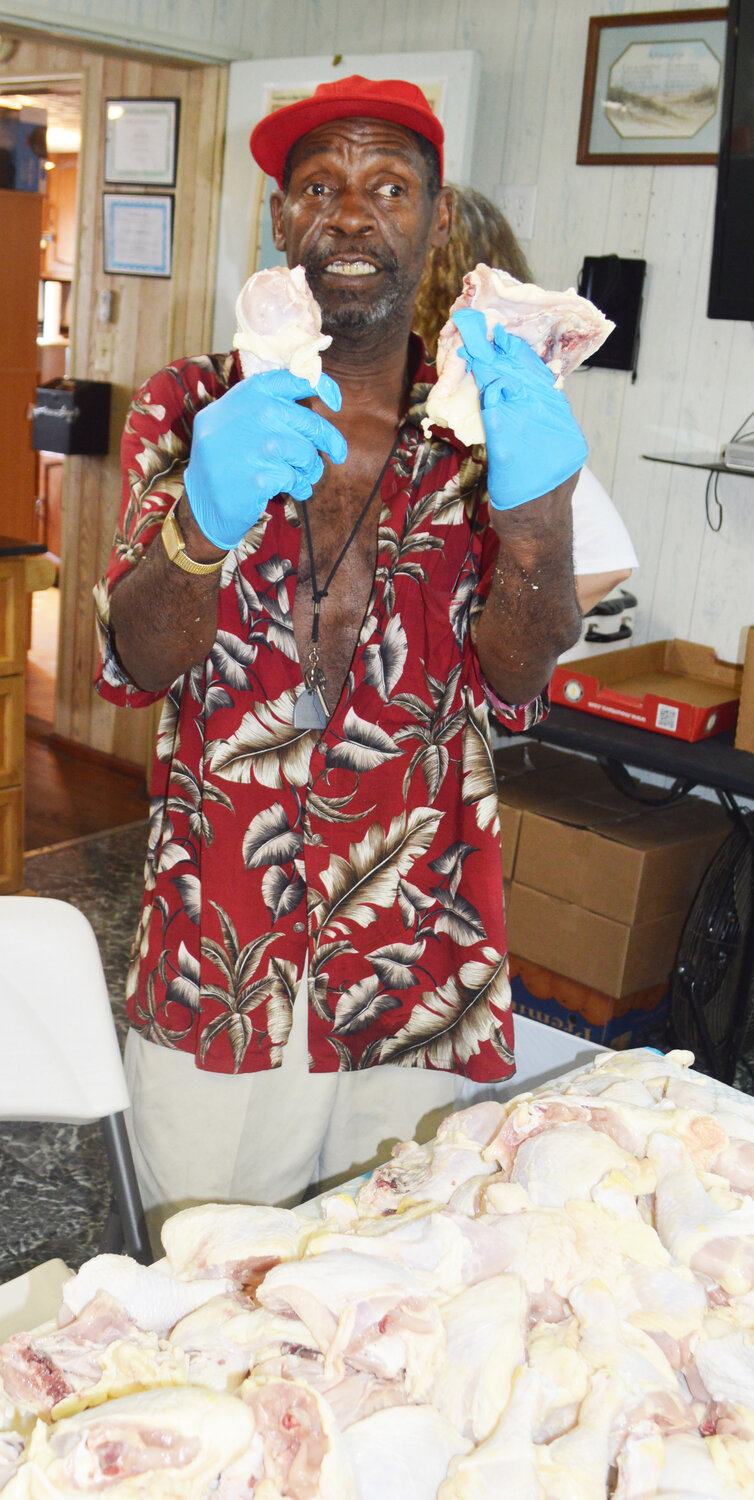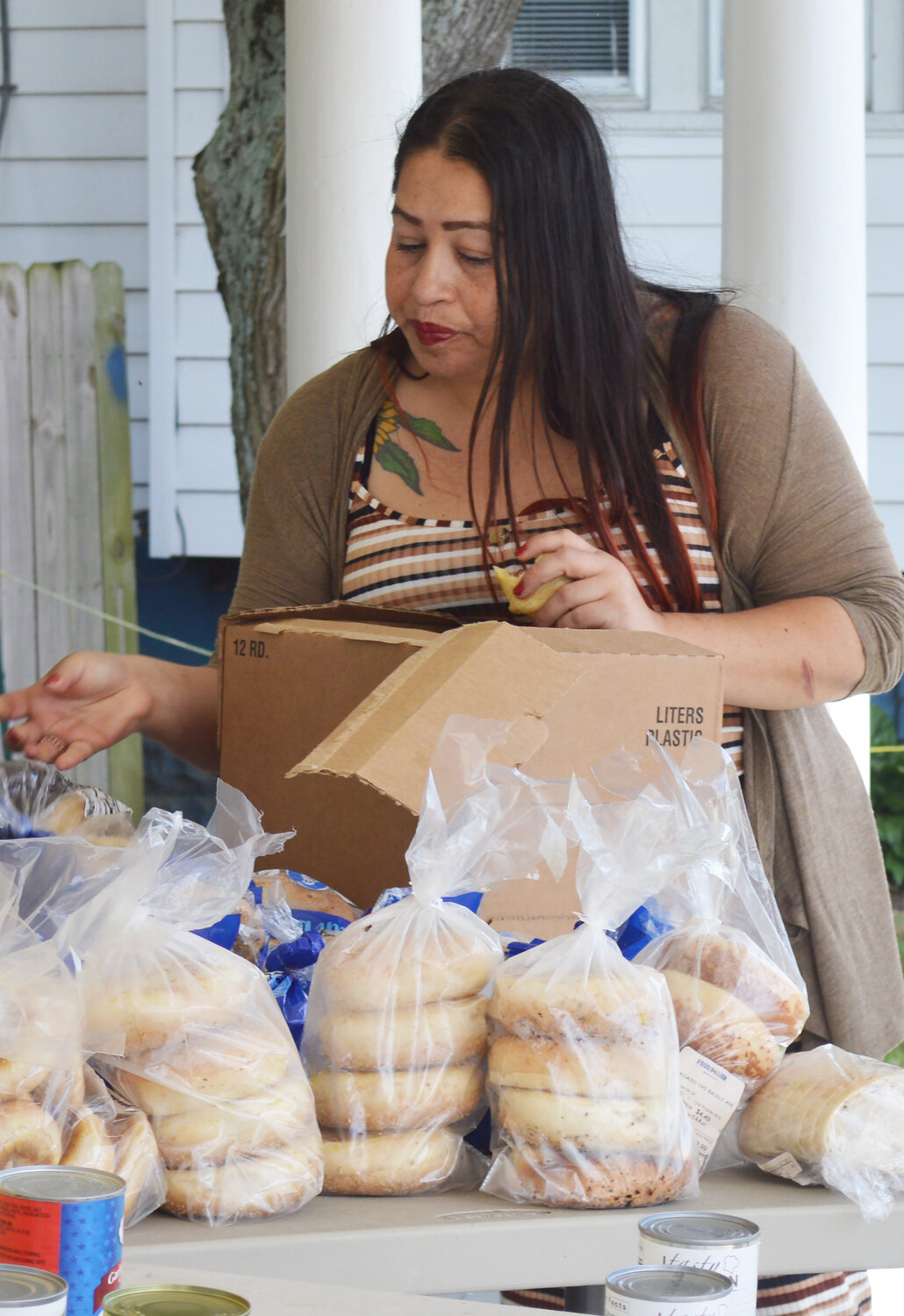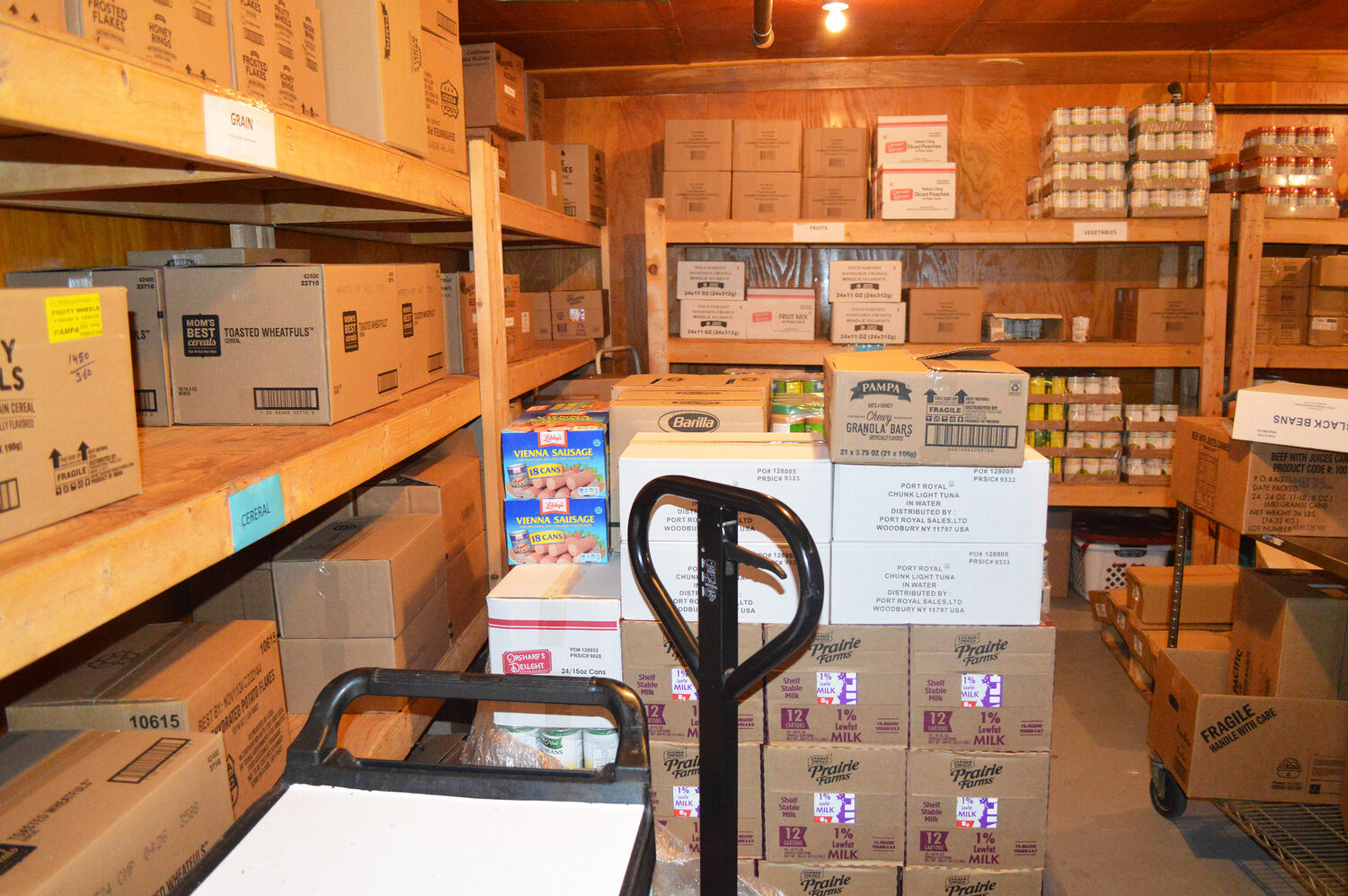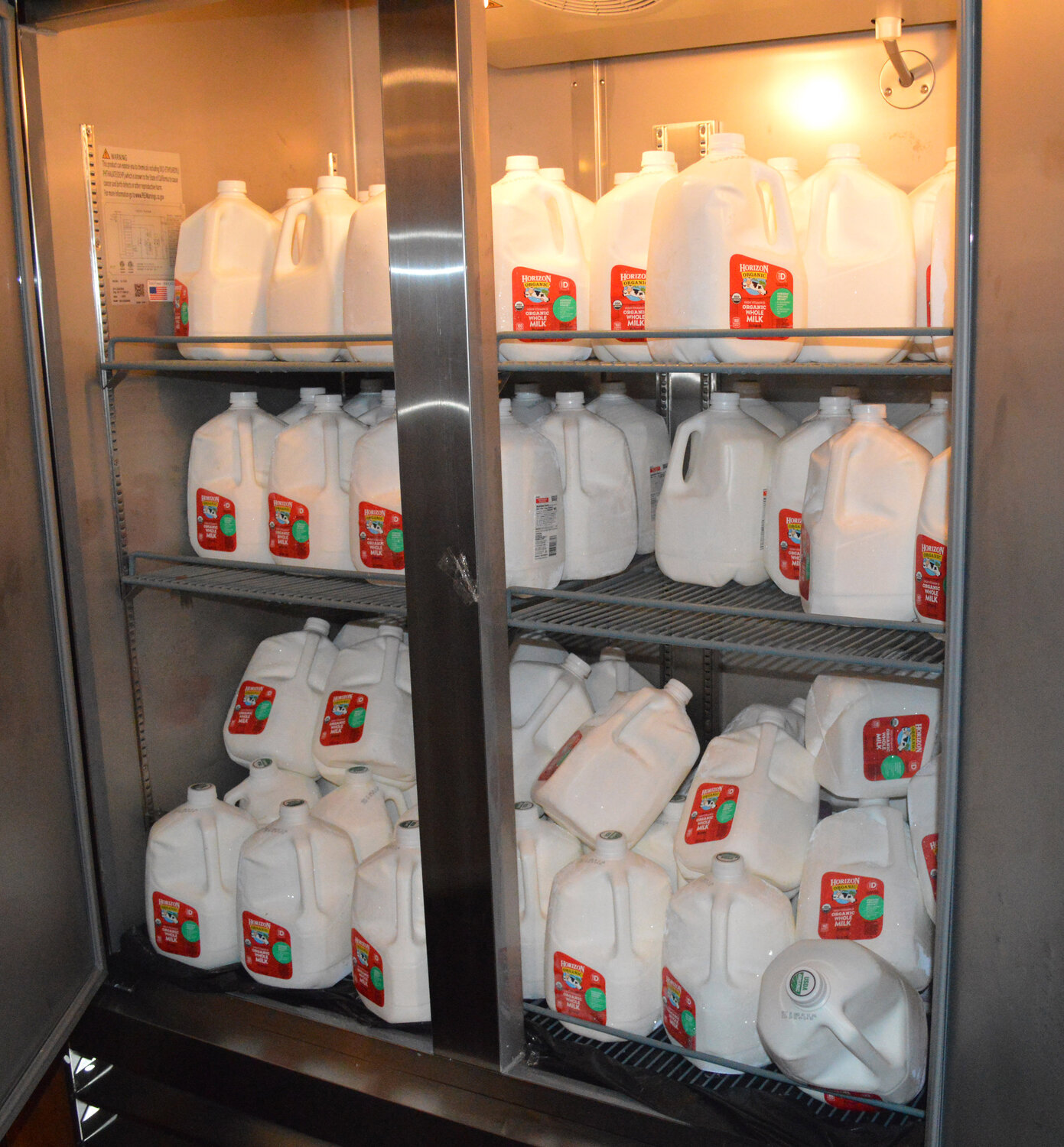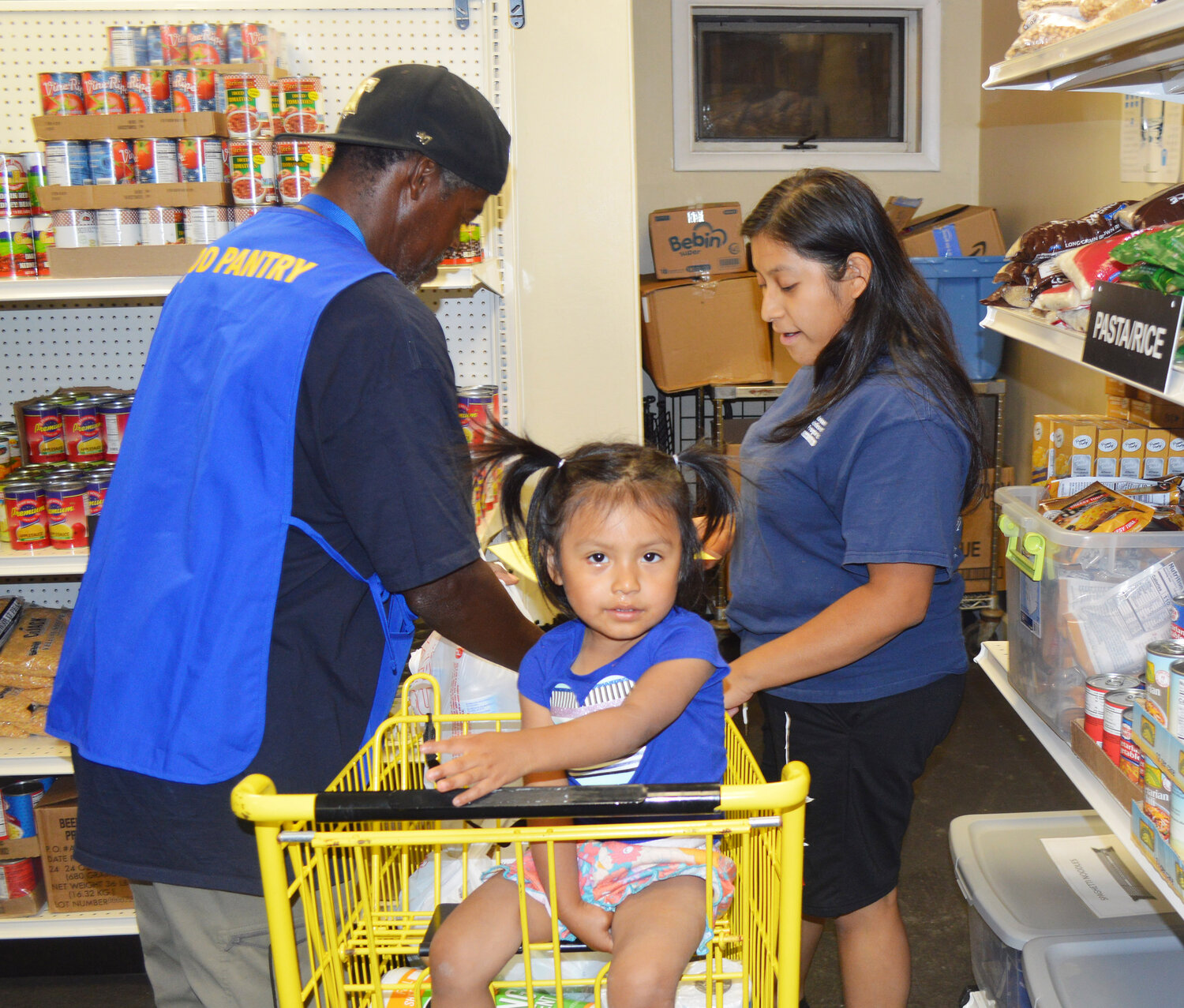Pantries work to keep pace with food insecurity
GEORGETOWN — Feeding the needs of those facing hunger is an ongoing task in Delaware.
It enlists the Food Bank of Delaware, the First State Community Action Agency and similar …

You must be a member to read this story.
Join our family of readers for as little as $5 per month and support local, unbiased journalism.
Already a member? Log in to continue. Otherwise, follow the link below to join.
Please log in to continueNeed an account?
|
Pantries work to keep pace with food insecurity
 By Glenn Rolfe
By Glenn RolfeGEORGETOWN — Feeding the needs of those facing hunger is an ongoing task in Delaware.
It enlists the Food Bank of Delaware, the First State Community Action Agency and similar organizations, plus individuals and, of course, volunteers.
All have the mission of decreasing the prevalence of hunger in the First State. According to Feeding America, more than 125,000 individuals were food-insecure here in 2022, about 1 in 8.
Kent County, at 13.7%, logged the most hungry individuals, followed by Sussex County (13.3%) and New Castle County (12%).
First State Community Action Agency executive director Bernice Edwards said there has been a noticeable increase in need at its North Railroad Avenue site.
“We have seen an uptick in the use of (our) pantry. We offer the foods, and we also offer toiletries, paper towels, diapers,” she said. “And we have seen an uptick, an increase in people who are coming in to use our services.”
On average, First State provides for about 125 families a month.
The agency is a member of the Food Bank of Delaware, which provides the bulk of goods in the pantry. The cooler is stocked with whole milk, and meat is stored in the freezer.
“Ours is a two-week supply,” Ms. Edwards said. “They ‘shop’ for what they need. We no longer have food boxes. Once they go through our intake process, then they come to the pantry. They get a shopping cart. There is a list with your family size, and you get so many meats, so many staples, (so) many proteins. They can shop for a variety of what we have on the shelves. Then, we bag it up, and they take it home. It’s like going to the grocery store.”
Pantry staffers, like Jarvis Harris and Linwood Pitts, will even place bags of food into clients' vehicles. And often, bilingual children will visit to translate for their parents.
Participation tends to rise toward the end of each month, when families' alloted food stamps run out, organizers note.
Along with the food bank’s donations, First State receives contributions from Mountaire, Perdue, Panera Bread, private individuals, schools and other groups.
“We welcome food drives because it helps us stock our pantry,” said Ms. Edwards, adding that no one is turned away. “Even though they are having difficulty, they still have dignity. They can come in and shop for the items that will be good for them.”
Not far from First State Community Action Agency is The Shepherd’s Office, a South Bedford Street hub for daily hot meals, food boxes and supplies.
“We are now a Hunger-Relief Partner with the Food Bank (of Delaware). We had to fill out a bunch of paperwork and jump through a few hoops to make sure that we were up to snuff with their requirements. They inspected us,” said the facility's manager, Jim Martin. “It’s amazing the kinds of stuff they give to us. They really have helped us ramp up the food pantry part of it.”
Volunteers also play a huge part. For the last six months, Teresa Fay has been offering time at The Shepherd’s Office.
“I needed to do something, and I saw something in the paper about The Shepherd’s Office,” she said. “I said a prayer, and the Lord sent me here.”
The site’s shelves are packed with canned goods and other nonperishables from the food bank, plus chicken is donated by Mountaire and Perdue. Fresh produce comes from area farms, notably Stag Run Farm, between Seaford and Georgetown.
“We have a good relationship with Stag Run. They drop off all kinds of stuff,” Mr. Martin said. “The canned goods are something that, if you are hungry, you’ll eat it, but a lot is stuffed with sodium, sugar. (With) fresh produce, we set up our tables out front. When produce comes, we can’t play games. We’ve got to get it out right away, to avoid produce going bad. Usually, if we put a table out with produce, it goes within seconds.”
Patrons of its pantry can get a food box containing two vegetables, three fruits, pancake mix, syrup, cereal and shelf-stable milk, plus a grocery bag containing an assortment with peanut butter and jelly, crackers, granola bars and cookies.
Mr. Martin noted that his clientele varies.
“You have the homeless that can’t cook anything because they have no kitchen,” he explained. “But then, we have the hungry that have shelter and homes and all that, but their refrigerator is empty. So, it’s like a ‘bridge to the fridge’ kind of thing.”
Currently, the establishment prepares about 265 distributions, said food manager Melinda Spano. She added that inventory is variable, as it’s based on supply. And, right now, the food bank has a temporary shortage.
“So, we had to get donors. We’re doing a lot better now. We have a lot of vegetables we didn’t have several months ago.”
The Shepherd’s Office’s first foray into food distribution was free bread.
“Then, over time we’ve got into other stuff,” Mr. Martin said. “We also have the hot meals. Every day, even Saturday and Sunday, we are giving meals out. We have noticed that that is increasing. We used to give out about 50 meals, and now, (it’s much more). And the food bank wants us to count every single hot meal that we give out.”
Members and subscribers make this story possible.
You can help support non-partisan, community journalism.
Other items that may interest you

